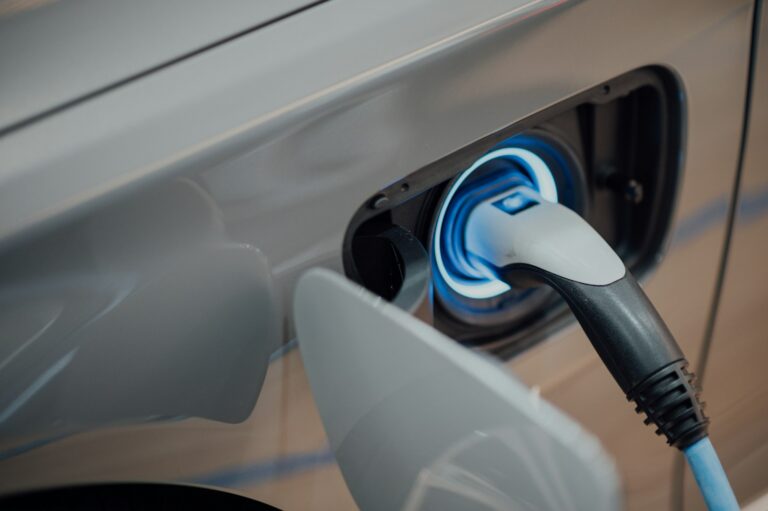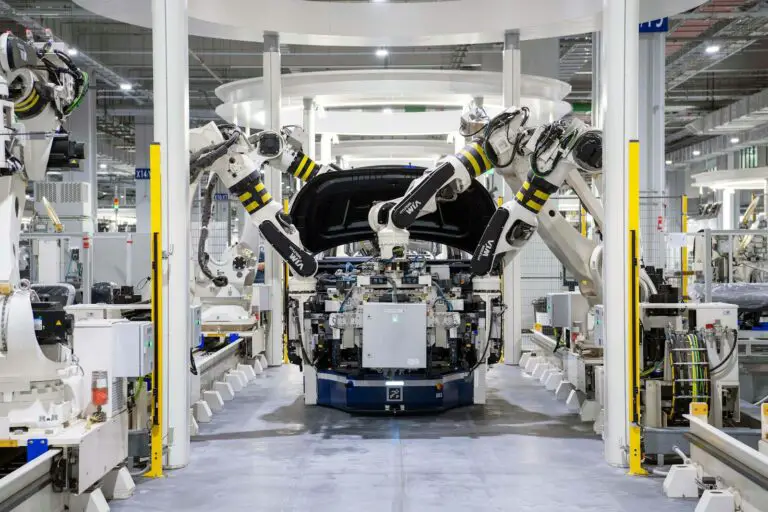Next-Generation Battery Technology for Electric Vehicles
The electric vehicle (EV) industry is on the cusp of a major transformation. A key player in this revolution is the battery technology that powers these vehicles, dictating their range, performance, and overall value proposition.
For automotive industry experts and EV enthusiasts, understanding the trajectory of next-generation battery technology is not only fascinating but also crucial for foreseeing the changes that will shape the vehicles of tomorrow. In this comprehensive analysis, we uncover the emerging battery technologies that promise to propel EVs to new heights.

Current Challenges in Battery Technology
Despite the rapid growth of the EV market, current battery technology presents several hurdles. The most pressing challenges include limited range per charge, extended charging times, and the relatively short lifespan of the batteries.
Range Anxiety and Charging Convenience
The range of an electric vehicle is a critical selling point. Modern lithium-ion batteries can carry vehicles for several hundred miles under optimal conditions, but their ability to truly mimic the ubiquitous gas vehicle is still limited. Long charging times further compound ‘range anxiety’ – the fear of running out of power before reaching a charging station.
Degradation Over Time
Lithium-ion batteries, the industry standard, suffer from a reduced capacity over time. This degradation in performance means EV owners eventually face the hassle and expense of battery replacement, a process that currently involves major vehicle downtime and logistical complexities.
Mining and Environmental Concerns
Another less discussed issue is the environmental impact of battery production. The mining of resources like cobalt, which is often used in lithium-ion batteries, raises ethical and sustainability concerns. A shift towards more eco-friendly production materials is thus imperative.
Emerging Battery Technologies on the Horizon
To address these challenges, scientists and engineers are working on next-generation battery technologies that could redefine the landscape of electric mobility.
Solid-State Batteries
Solid-state batteries are a game-changer, swapping out the liquid or gel electrolytes of lithium-ion batteries with solid-state alternatives. This significantly reduces the risk of thermal runaway – a critical safety feature. These batteries also promise up to 50% more energy density, which translates to longer ranges, and faster charging times.
Lithium-Sulfur Batteries
Lithium-sulfur batteries are another emerging technology known for their high energy density, which is five times that of conventional lithium-ion batteries. This leap in storage capability has the potential to revolutionize many aspects of EV performance, including the potential for lighter EVs that can travel further on a single charge.
Sodium-Ion Batteries
Sodium-ion batteries have been gaining attention for their potential to offer an alternative to lithium batteries that is both cheaper and more abundant in the Earth’s crust. While they may not yet match the performance of lithium-ion batteries, they present a promising path forward in developing more sustainable battery technologies.

Impacts on Electric Vehicles
The adoption of next-generation batteries in electric vehicles will not only mitigate the current challenges but also usher in a new era of electric mobility.
Increased Range and Efficiency
The higher energy densities of these emerging batteries will dramatically increase an EV’s range, enabling more ambitious trips without the need for frequent charges. Furthermore, advancements in efficiency will lead to more energy being converted to power the vehicle, rather than being lost as heat.
Faster Charging Capabilities
One of the most exciting prospects is the potential for ultra-fast charging, with solid-state batteries leading the way. Future EVs equipped with such batteries could charge in minutes, making long-distance travel in electric vehicles as practical as in traditional cars.
Environmental Benefits
Switching to more advanced battery technologies can lower the carbon footprint of EVs even further. With reduced reliance on rare and environmentally taxing metals, and potential for recyclability and sustainability, next-gen batteries align with the green image that electric vehicles strive to embody.
Future Trends and Innovations
The future of battery technology in electric vehicles is about more than just how far they can go or how quickly they can charge. It’s also about integration with other technologies and sustainability practices.
Integration with Renewable Energy
The synergy between EVs and renewable energy sources is a natural fit. The more advanced batteries of the future could be charged with energy from solar panels or wind turbines, providing a truly clean transportation option.
Battery Recycling and Sustainability
The industry is also poised to see advancements in battery recycling. With projected increases in the number of electric vehicles on the road, the demand for efficient and sustainable battery disposal and recycling methods will be significant.
Advances in Wireless Charging
Wireless charging offers the convenience of never needing to plug in and can help improve the lifespan of batteries by eliminating some of the degradation caused by repeated charging cycles. Research in this area is paving the way for a new dimension of user experience in EVs.
Real-World Examples and Case Studies
To illustrate the potential of these emerging technologies, we can look to some of the most pioneering companies in the EV sector.
Tesla’s Lithium Iron Phosphate (LFP) Batteries
Tesla’s partnership with CATL led to the deployment of LFP batteries in the Model 3 in China. These batteries have a longer life and are deemed safer than their traditional lithium-ion counterparts.
Volkswagen’s Investment in Solid-State Batteries
Volkswagen’s investment in QuantumScape showcases the industry’s pivot towards solid-state batteries. Their potential for faster charging and longer range could be a game-changer for the EV market.
Sodium-Ion Batteries in the Commercial Segment
Faradion’s use of sodium-ion batteries in commercial vehicles exemplifies the pursuit for a more cost-effective and earth-friendly alternative in the battery landscape.
Lithium-Sulfur Batteries in Aviation
Oxis Energy’s lithium-sulfur batteries have been a breakthrough for air travel. With their lighter weight and higher energy density, they open up exciting possibilities for electric air transportation.
The Road Ahead for Electric Vehicles
It’s clear that next-generation battery technology holds the key to unlocking the full potential of electric vehicles. The advancements we’ve discussed are not just theoretical; they are already making their way into the vehicles and infrastructures of the future.
The transition to these new technologies may not be immediate, with obstacles such as scalability, cost, and industry inertia to overcome. However, with the collective effort of researchers, manufacturers, and policymakers, the dream of efficient, high-performance, and sustainable electric vehicles powered by next-gen batteries is well within reach.
For those in the automotive industry and EV enthusiasts, staying abreast of these developments will be essential. As the world gears up for a more sustainable future, the batteries in our electric vehicles will be more than just power sources – they will be the tangible embodiment of technological progress and environmental stewardship.







